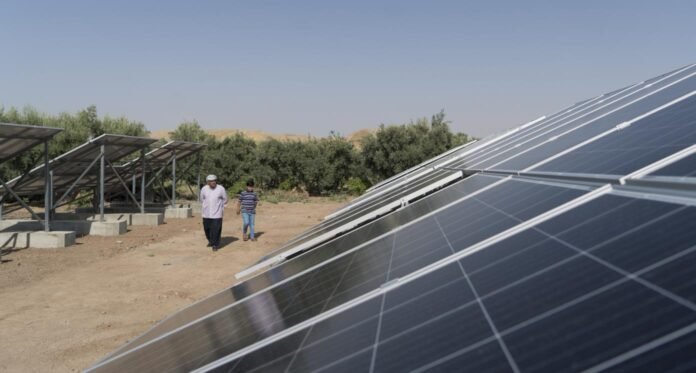Iraq offers incentives for solar energy as part of its national strategy to combat emissions and ease pressure on the power grid. The government has launched a low-interest loan program that encourages both residential and commercial sectors to invest in solar technology.
This new initiative comes through a partnership with Region Trade Bank (RTB) and financial backing from the Central Bank of Iraq. Under the plan, users can access loans ranging from 7 million to 30 million Iraqi dinars, or roughly $4,800 to $20,700. The loan terms stretch up to seven years, with an optional six-month grace period to support repayment.
According to RTB’s CEO Ahmed Nowzad, the program offers a practical and inclusive pathway toward clean energy. He emphasized that Iraqis can apply for these loans through the government’s official portal. This streamlined access ensures that more people can benefit from the plan quickly and efficiently.
While Iraq remains a leading oil producer, it continues to battle recurring electricity shortages. The summer season, in particular, brings intense heat with temperatures above 50°C. As a result, energy demand soars, and blackouts become more frequent. To address this challenge, the country is turning to solar power as a viable alternative.
Iraq offers incentives for solar energy to promote diversification in the energy sector. By supporting solar installations, the government aims to reduce dependence on fossil fuels. In doing so, Iraq also takes a step toward fulfilling environmental goals and improving energy security.
Furthermore, solar panels offer a long-term solution for both homes and businesses. The loans make these technologies affordable while also stimulating the green economy. Iraq hopes that widespread adoption of solar power will boost local manufacturing, create jobs, and encourage sustainable innovation.
Looking ahead, officials plan to expand the program based on public response and market growth. By investing in clean energy, the country builds resilience and supports global efforts to fight climate change.
In conclusion, Iraq offers incentives for solar energy that empower citizens, support economic development, and foster a cleaner future for all.


